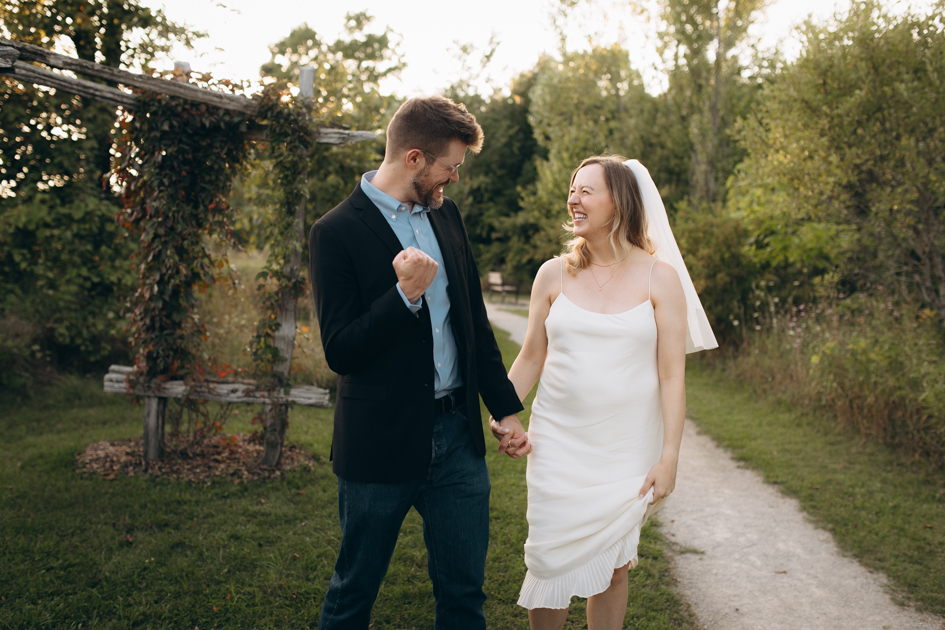How to legally get married in Ontario without having a traditional wedding
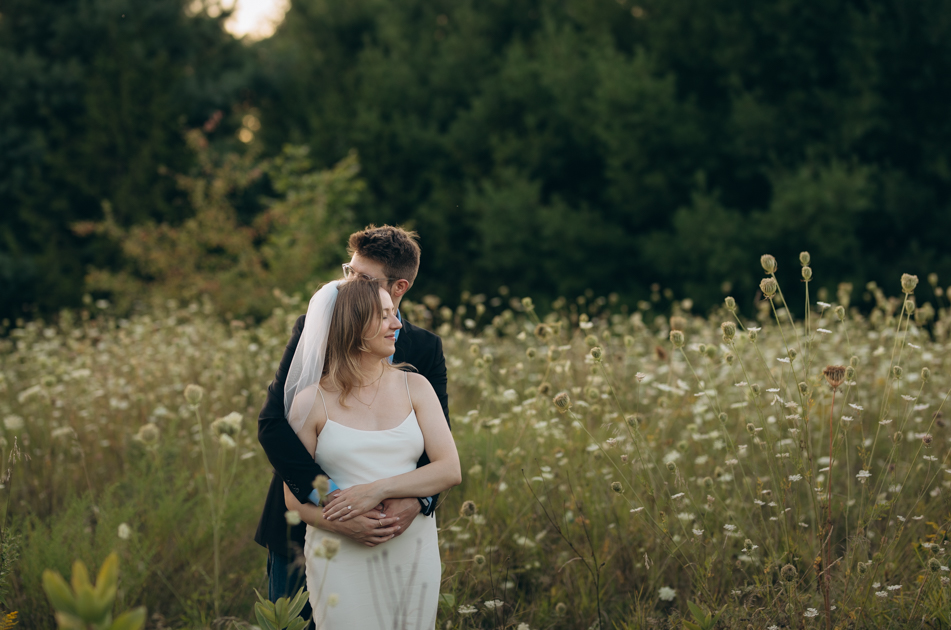
I love photographing intimate and non-traditional weddings, but I regularly hear from clients that they just don’t know where to start when it comes to planning the legal stuff. When you’re considering an elopement or an out-of-the-box wedding, it can be hard to know how to make things legally legit. So, I’ve teamed up with my absolute favourite officiant, Rev. Kristina Simons, to bring you this step-by-step guide to walk you through how to still get married (with all the paperwork) no matter what kind of wedding you choose, or where you choose to have it.
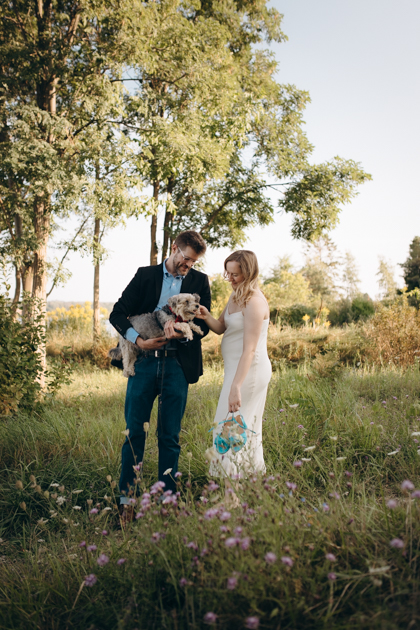
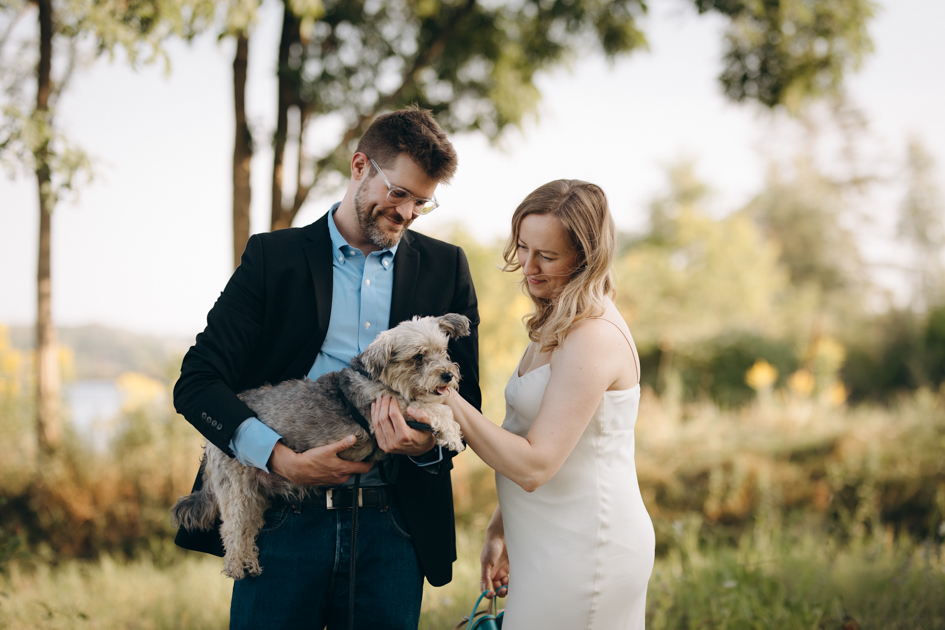
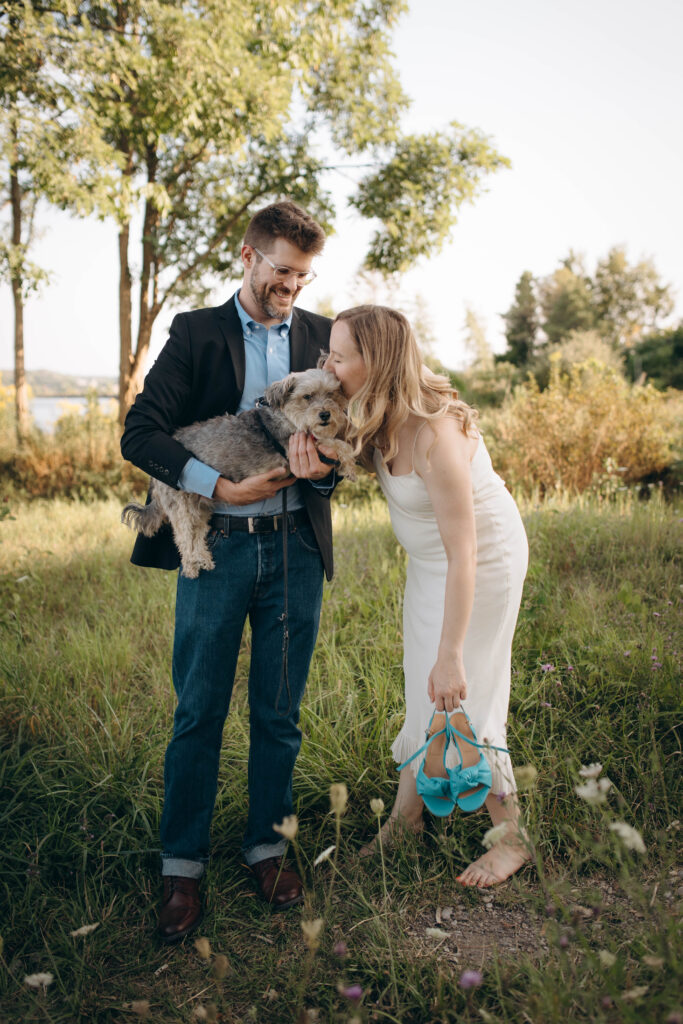
You can get married anywhere.
Quick Tip: Before we get started on the whole how-to process, did you know that you can hire a private officiant and get married nearly *anywhere* in the province of Ontario? Yep, that’s right – if you want to get married on the beach, in a forest, in various national parks, on the edge of the escarpment, on a boat or a plane or in your backyard… you can. By hiring a private officiant, you don’t have to go the City Hall route (but of course, you can if you want to!). So, now that that’s out of the way, let’s get to the steps.
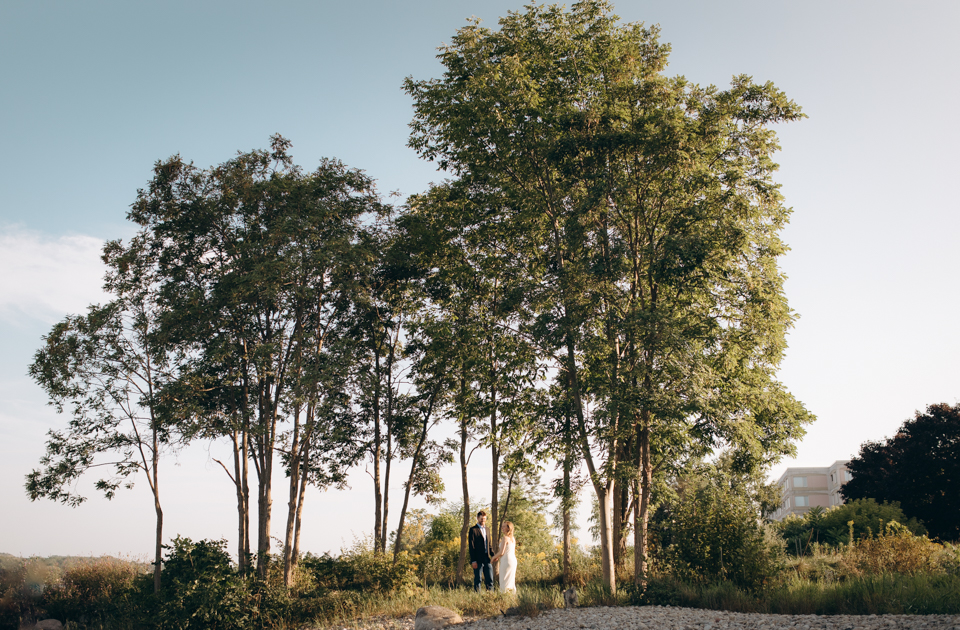
Step 1: Ensure both partners can get married.
In Ontario, both you and your partner need to be aged 18 or older before you can get married. Additionally, if one or both partners has been previously married, they need to ensure the divorce is finalized before the proposed date of marriage. Simply separating from your previous spouse doesn’t cut it, you need to have legal documentation to prove that your previous marriage is no longer.
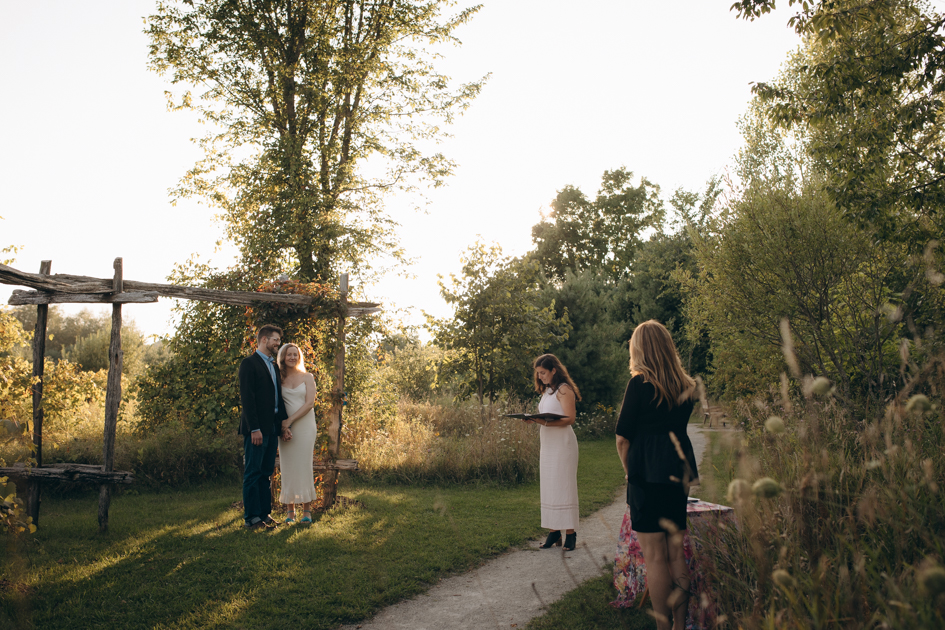
Step 2: Find & contact an officiant.
Choosing the right officiant for you is really important! Truly, I’ve seen wedding ceremonies be both bomb or bust depending on who you’ve got up front to lead the day, so I really recommend spending some time to make sure you and your chosen officiant are on the same page for how you want your wedding to feel.
There are a variety of different officiants in Ontario, so if you’re looking for someone with a specific set of values or ceremony style, there are options! Often I hear from clients who would love to have a friend become ordained and then marry them, but sadly in Ontario it’s just not that easy. While your friend could absolutely run much of your ceremony in a symbolic way, a legal officiant needs to be involved for a specific portion of your ceremony to keep things legal. It takes significant time & money to get ordained, so it’s just not a practical option for most people. Only those authorized under Ontario’s Marriage Act can be a marriage officiant, and they can be either a registered marriage officiant or a civil marriage officiant.
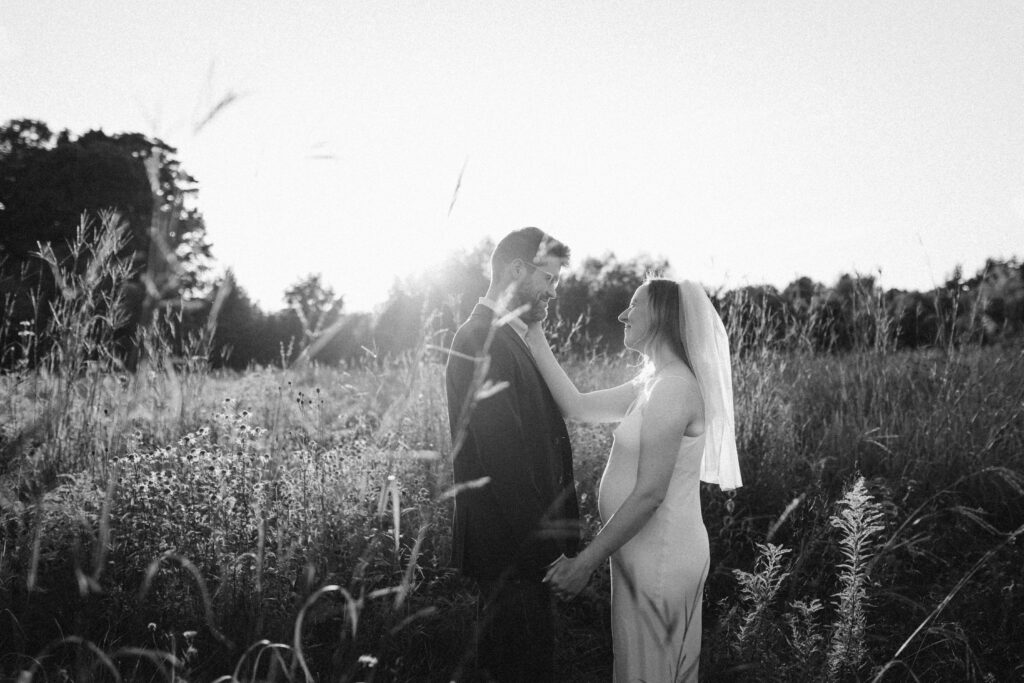
What is a registered marriage officiant?
Registered marriage officiants can be a religious officiant or a person who is entitled and recognized by a band, First Nation, Métis or Inuit organization or community or Indigenous entity. If you’re not sure or wish to double check if their officiant meets the criteria, you can search here.
What is a civil marriage officiant?
Civil marriage officiants can perform civil (non-religious) marriages. This could be a municipal clerk and/or their delegate authorized to perform civil marriages in Ontario, a judge, an Ontario associate judge, or an Ontario justice of the peace. If you think this route is the best fit for you, you may find this site helpful. My absolute favourite officiant to work with is Rev. Kristina Simons, who partnered with me on this resource and is an absolute gem to have with you on your wedding or elopement day!
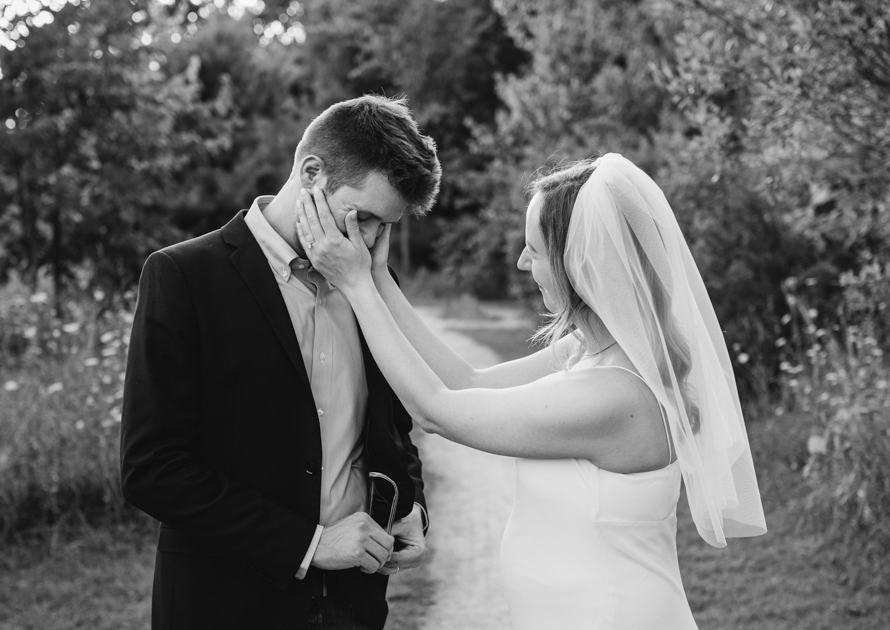
Step 3: Get the marriage license.
After you’ve chosen your officiant, it’s time to get your marriage license from your local city hall. This is the paperwork that you’ll sign on the big day, so you’ll want to make sure it’s accurate and kept in a safe place! The license is only valid within three months of the proposed wedding date, so keep that in mind before heading in to get the paperwork. If the wedding date changes and exceeds the three month limit, you’ll have to go back and re-apply for a wedding license. Make sure when you go to apply for your wedding license that you bring 2 pieces of government-issued ID for each of you, and any necessary supporting documentation (such as proof of divorce). Only one of you needs to go into City Hall to get the paperwork, but you must make sure you bring the government issued ID for both of you!
As for fees, well… it can be worth “shopping around”. Prices do vary at municipal offices and it actually doesn’t matter where you get it, as long as it’s within Ontario! You can find out if your local office offers this service here.
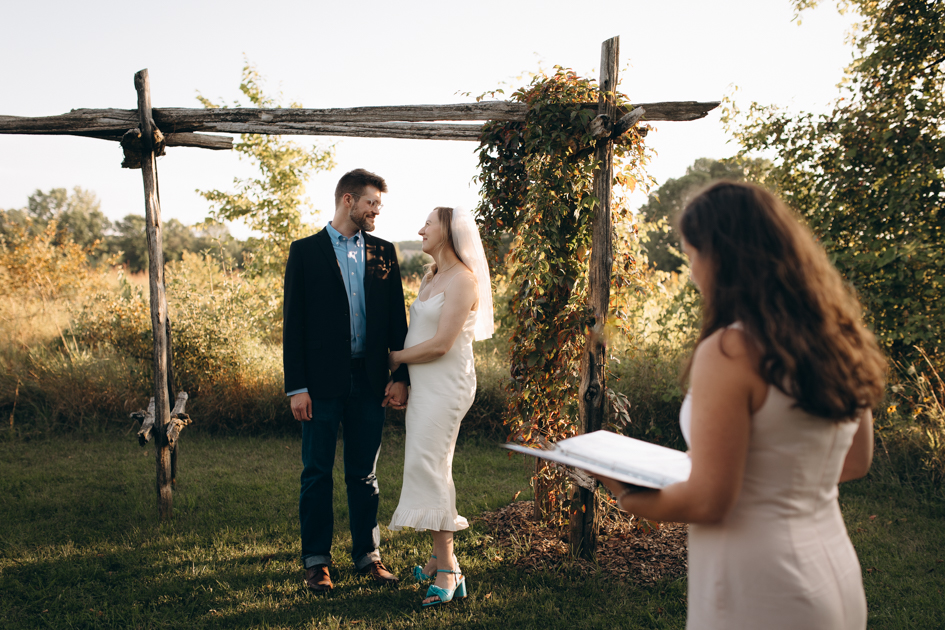
Step 4: Sign the paperwork on your wedding day.
Make sure you bring the license that you picked up previously to your wedding ceremony! This license is given to the officiant on the day of the wedding. They will then facilitate filling in the paperwork properly, guiding you and your witnesses on where and when to sign, and then mailing in the license within 2 days of your wedding. You’ll also sign the register and a record of solemnization during your ceremony. The register is kept in safe keeping by the officiant (it’s a large record of all weddings that they perform), and the record of solemnization is yours to keep as a record of your marriage. Although it’s not a legal document, the record of solemnization is important to at least keep until you’ve received your marriage certificate.
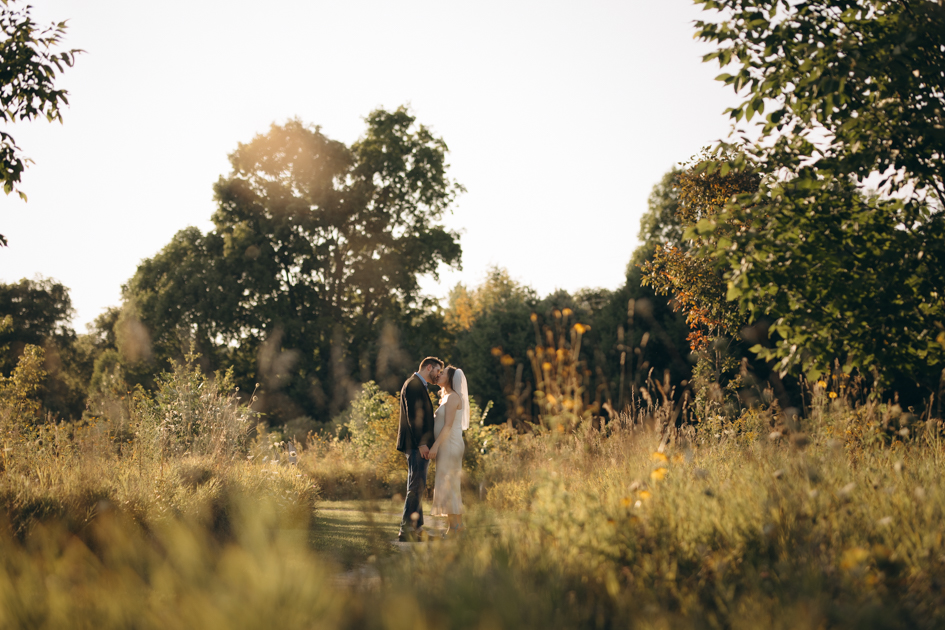
Quick Tip: You’ll need 2 witnesses!
In order to sign your documentation, you’ll need two witnesses – and your officiant doesn’t count! However, as your photographer I can (and happily will) sign your paperwork as one witness and then all you need is one other person present. This can be someone you know well, or if you’d rather keep the day entirely private, we can help you find an additional witness for the day that *isn’t* on your guest list.
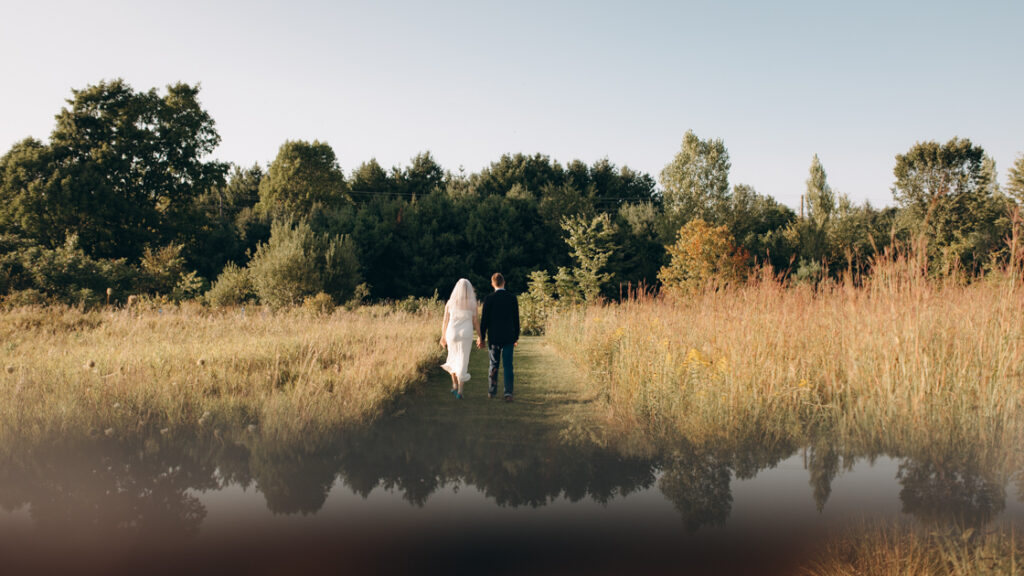
Step 5: Apply for your marriage certificate.
Shortly after the wedding, your officiant will be in touch to help direct you on how to apply for your marriage certificate which can be done roughly 6 weeks after the wedding. This certificate is needed if one partner would like to change their name or have their marriage be acknowledged for any legal purposes. It can take time to get this document processed (especially during busy season), so keep this in mind if you’re looking to get any legal changes done quickly. To apply for your marriage certificate, you can go to the Ontario Online Certification Application form here.
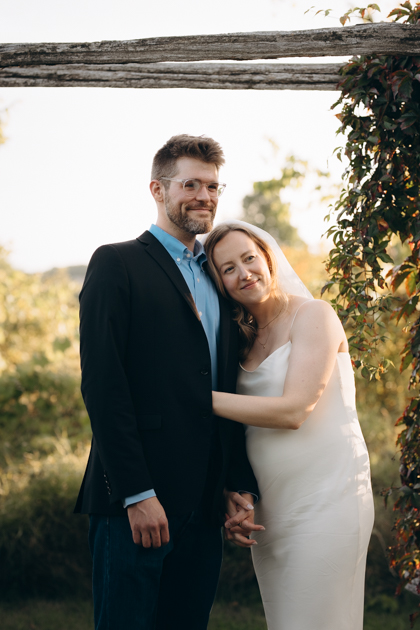
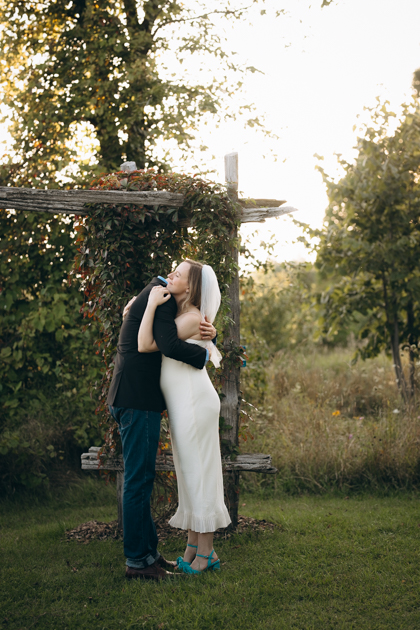
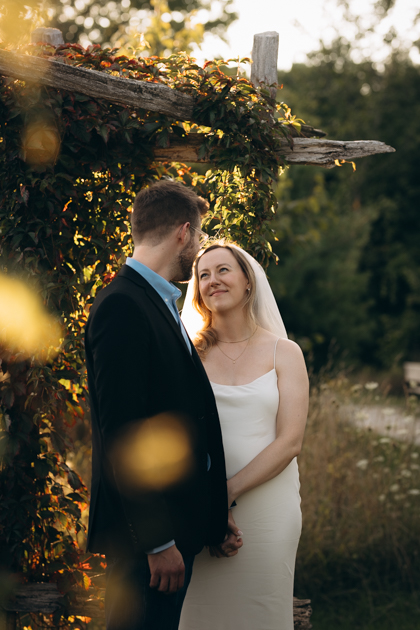
You’re married!
That’s it! While the process can sound complicated at first, it’s really not too tricky and it’s entirely possible to still get legally married without having the traditional wedding. Whether you choose to elope or just want something a little less structured, I really believe it’s worth finding the right officiant and having the wedding day that feels right to you. Rev. Kristina Simons and I work together regularly, and we’d love to help you craft an intentional, intimate wedding experience, so please get in touch with us!
